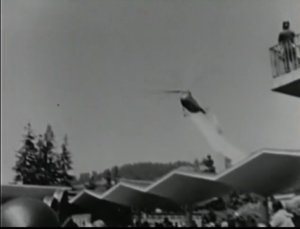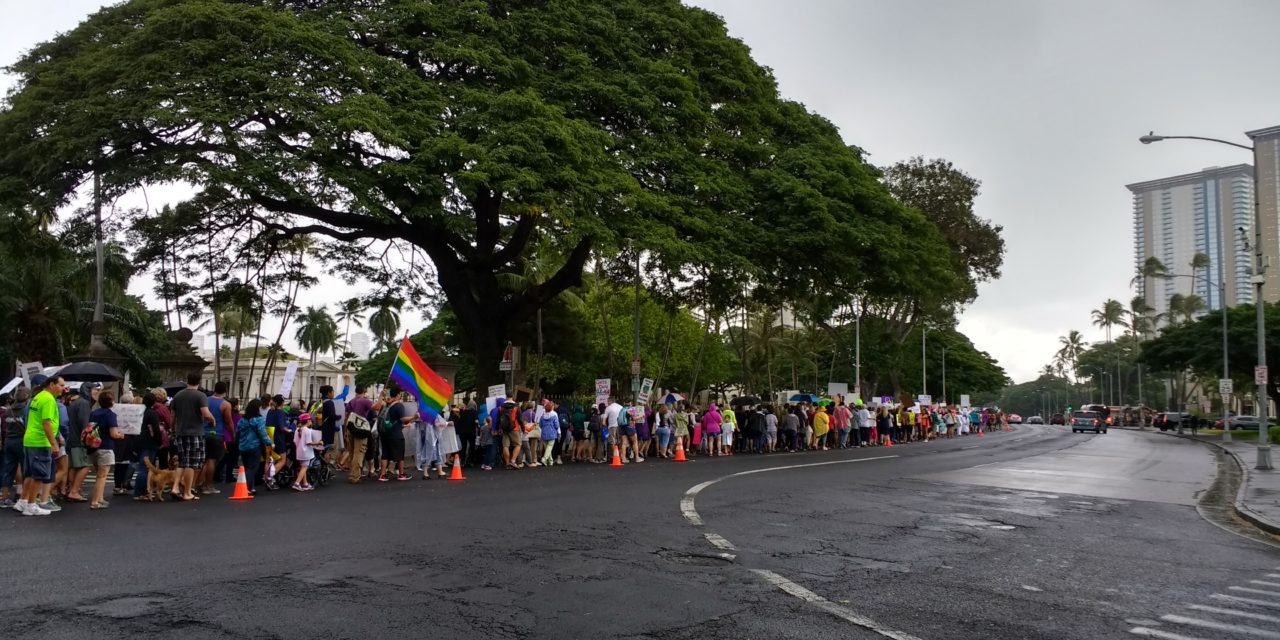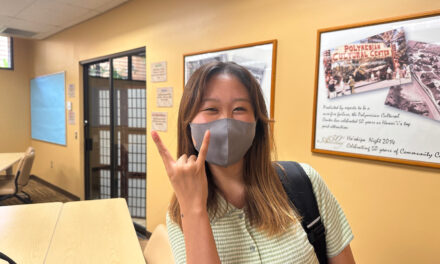By Chris Takahashi | Staff Writer
Gov. Jerry Brown of California recently weighed in on the free speech debate (fiasco, really) that has embroiled students and faculty at the University of California, Berkeley, during the last few months. Brown said in a podcast interview with political strategist David Axelrod over the weekend that UC Berkeley officials should “man up” to allow controversial individuals to speak on campus.
Brown articulately teased out an argument more tasteful than just the “man up” comment during his interview with Axelrod, all in the defense of free speech.
The argument put forth by the left-leaning Brown was welcoming and serves as a relevant backdrop in the ongoing conversation concerning limitations to free speech. Limitations to free speech should be avoided at all costs, except for instances in which free speech broaches the “incitement of violence” standard established by the Supreme Court.
This assertion is not so much my personal opinion as it is essentially a summation of legal precedence. However, it seems that our collective perspective on free speech versus hate speech has become much too polarized and divisive. The shouting matches between the left and right are unproductive at best and, at worst, potential spark plugs for incidents of violence like the events that unfolded recently at UC Berkeley. Free speech, with the standard of what constitutes hate speech in mind—”incitement of violence”—should not be compromised to satisfy our personal and individually-tailored political ideologies.
As reported in The New York Times, UC Berkeley administrators cancelled, and then attempted to reschedule, a planned speaking event for Ann Coulter in April. The notoriously conservative political pundit was invited to a speaking appearance sponsored by the Berkeley College Republicans.
The speech was cancelled due to security concerns by Berkeley administrators that were unfortunately validated in the context of riots that tore up campus just hours before another politically conservative figure, Milo Yiannopoulos, was scheduled to speak at Berkeley in February. The riots that took place before the scheduled speech by Yiannopoulos caused considerable property damage to campus, estimated at $100,000 in total damages.
Governor Brown’s defense of free speech in the face of administrative decisions at UC Berkeley was predicated upon the assumption that Coulter’s speech would not be met by the same violence that characterized the ill-fated evening of rioting that led to the cancellation of Yiannopoulos’ scheduled appearance. The assumption was as hopeful as his message; free speech should be applied even to those individuals that hold viewpoints we passionately disagree with.
As a strongly left-leaning individual, I regarded these instances of violence as ironic at face value, even if those individuals who resorted to violence in Yiannopoulos riots were not representative of the peaceful majority.
Did liberals have a reason to denounce Yiannopoulos and Coulter to speak on campus as part of their First Amendment rights to speech? Absolutely. These individuals have downright terrifying views on issues across the board that seem to advance a violent ideology that is at least capable of inciting violence in specific instances.
Ironically, it was left-leaning individuals who actually engaged in acts of property damage and a showdown with the police, even if they were protesting Yiannopoulos on grounds of hate speech. Fortunately, only minor injuries were reported during the altercation, which Berkeley officials described as “violent.”
Coulter is unabashed about her views in making America a solely white and Christian nation, anyone else be damned. It’s also worth mentioning that many moderate republicans view both of these two individuals as extremists, and for good reason.
If you do look at some of the things Coulter has said about America’s foreign interventions, such as in a column she wrote after 9/11, you will notice a tone that is patently incendiary. As Coulter wrote in the right-leaning online publication Townhall just days after the terrorist attacks, “We should invade their countries, kill their leaders, and convert them to Christianity.”
That type of statement certainly seems to pass the “incitement of violence” standard as defined by the Supreme Court. Had she been in a position of power — as an elected official — or had the capability to encourage action — as a leader of an interest group — then I would suspect that this would be interpreted as an incitement of violence. But, by no means am I a legal scholar.
It does seem that she is a such a fringe voice, on what I’d like to think is a fringe position on the right, so as to render such a viewpoint powerless. Anybody who makes a comment like the one Coulter did after 9/11 should expect serious ostracization by any reasonable person.
I think this is an important point to make. If Coulter has such a small, uninfluential audience of worshippers, why take her serious?
Let her speak at Berkeley and continue to conflate and ostracize the rhetoric coming from members of the modern day Republican Party. Many of them already just conceal spiteful viewpoints in language only a career politician is capable of crafting. And, after all, it was the Berkeley College Republicans that sponsored her speech on campus.
The riot over Yiannopoulos speaking and eventual cancellation of Coulter’s appearance are also curious developments in the context of Berkeley’s own history of free speech regarding political activity.
During the 1960s, UC Berkeley was a hotbed of progressive student activism and ground zero for the Free Speech Movement. This movement was chronicled in a documentary called “Berkeley in the Sixties.” During this movement, the UC Berkeley administration actively enforced a prohibition on any acts of political advocacy (even the distribution of handbills and flyers) on the grounds of campus.
This campus-wide policy led to a stifling of free speech, which is a dangerous and slippery slope toward the encouragement of an uneducated and ignorant society.

A National Guard helicopter flies over UC Berkeley students gathered at Sproul Plaza during the Free Speech Movement (screenshot from “Berkeley in the Sixties”).
At the height of peaceful protests (on campus, at least; Oakland was another story), then-governor of California Ronald Reagan ordered in the National Guard. In a climactic scene of the Free Speech Movement, a National Guard helicopter did a low-altitude flyby over hundreds, if not thousands, of students that gathered on UC Berkeley’s Sproul Plaza.
The Free Speech Movement was an important campaign as student organizers eventually had many of their goals for uninterrupted political advocacy met. Even if most of the political advocacy had a progressive, left-leaning tilt, those on the right were also granted the right to organize politically.
It is in the spirit of that movement that we should better inform our perspective on matters of free speech today, on campus, on the streets, and in town hall meetings. We owe it to ourselves to maintain open channels of communication without the fear of reprisal, so long as it’s free speech and not hate speech. When these barriers of communication breakdown, we are susceptible to acts of violence. We already have enough of that to deal with in society so let’s not encourage more by consequence of our political squabbles.






